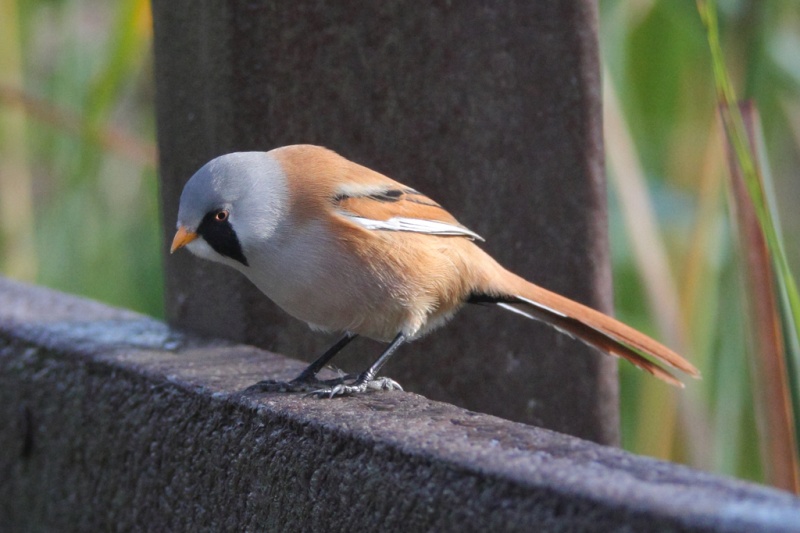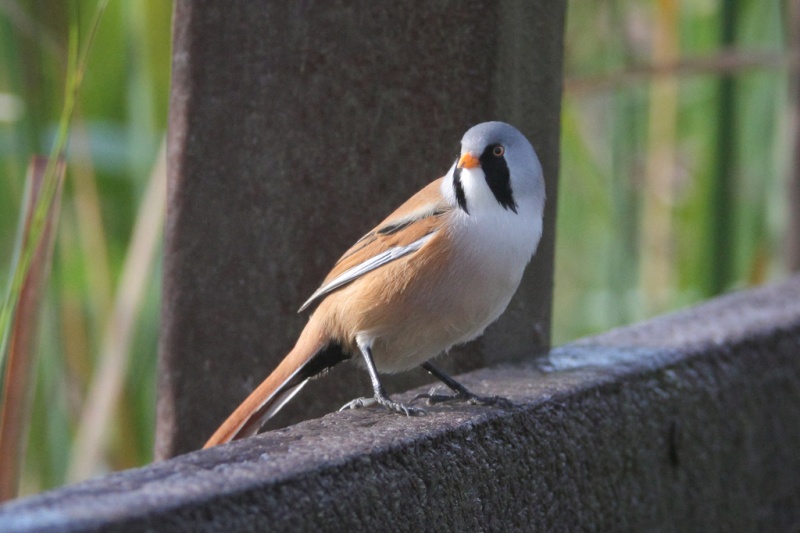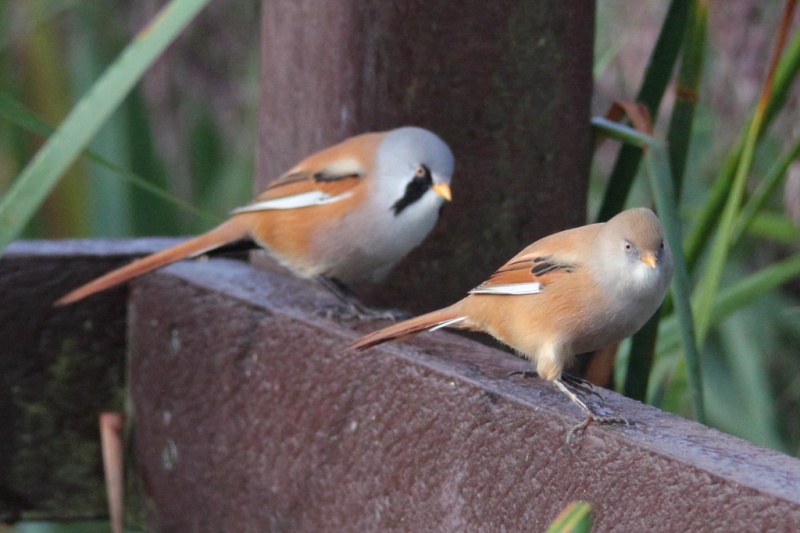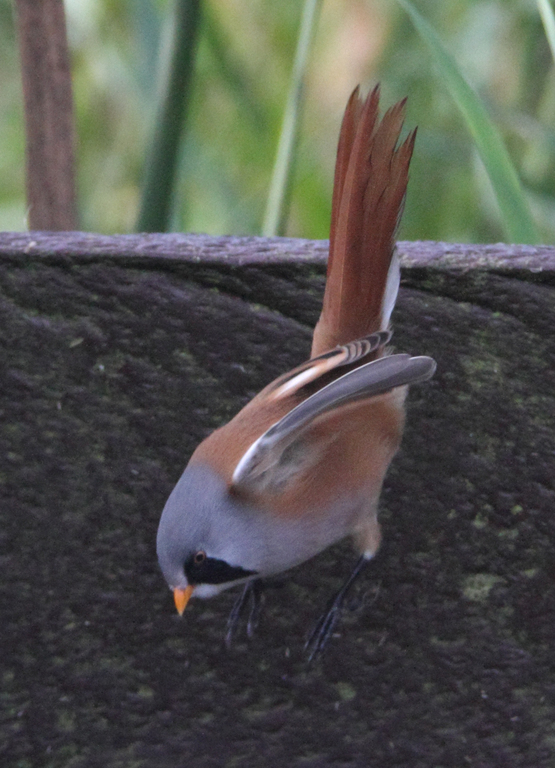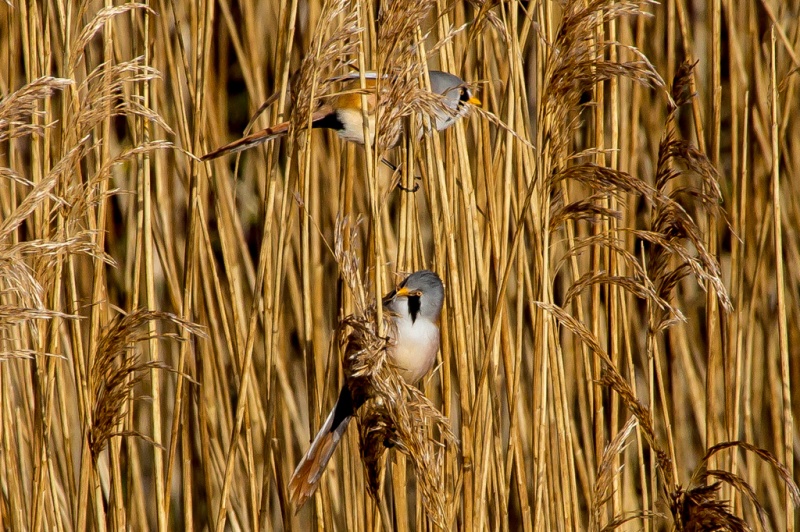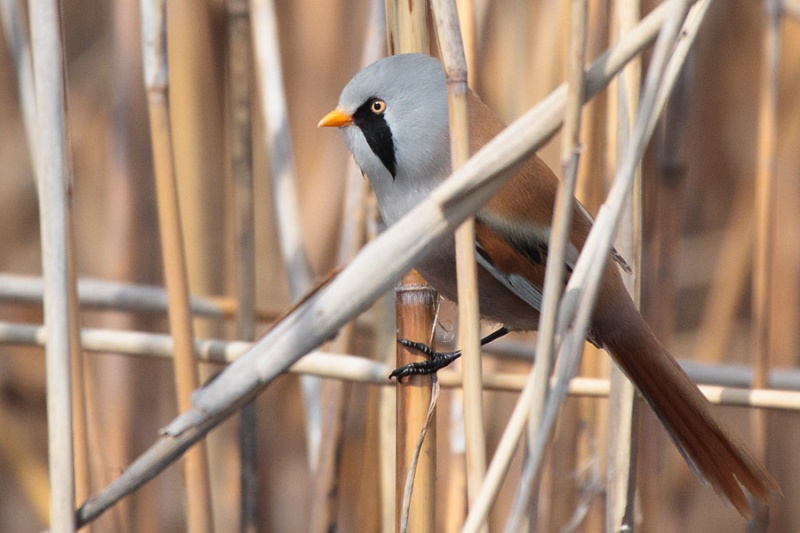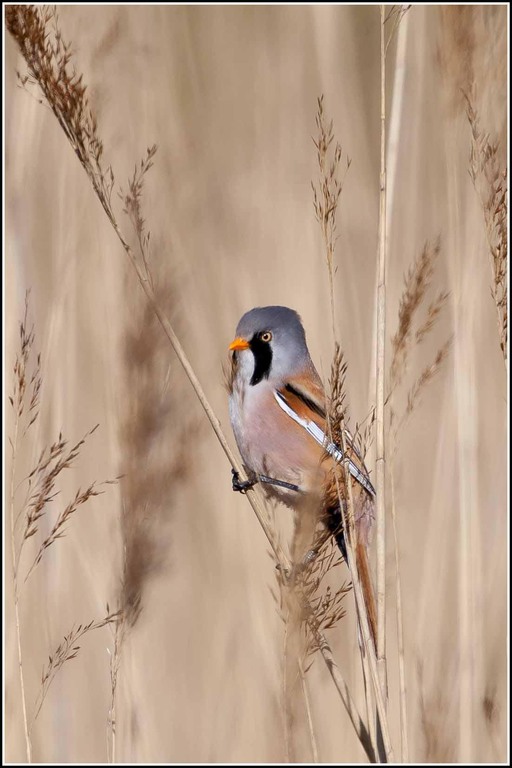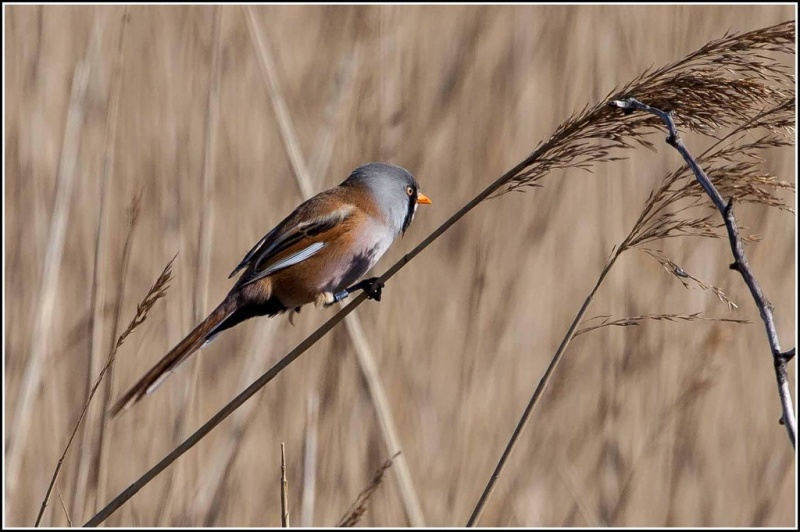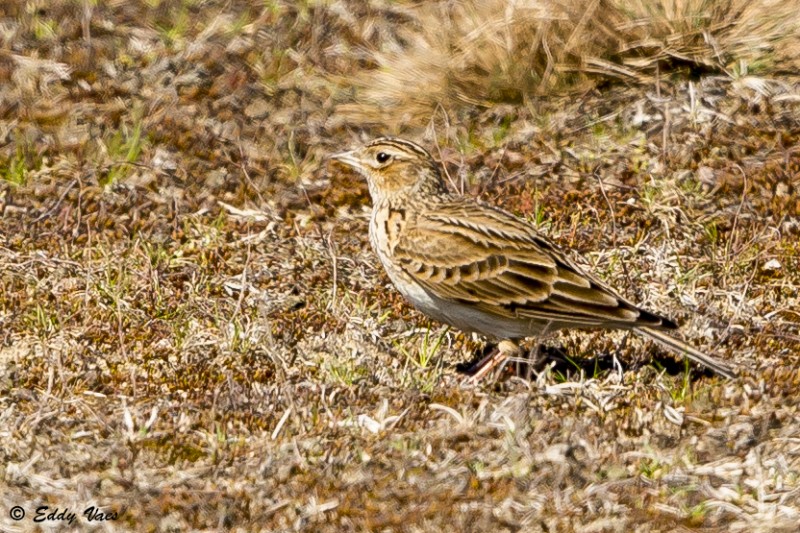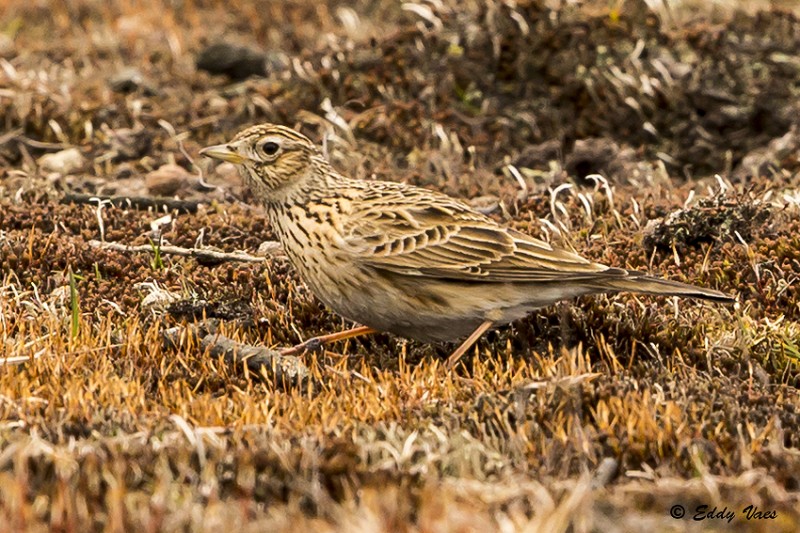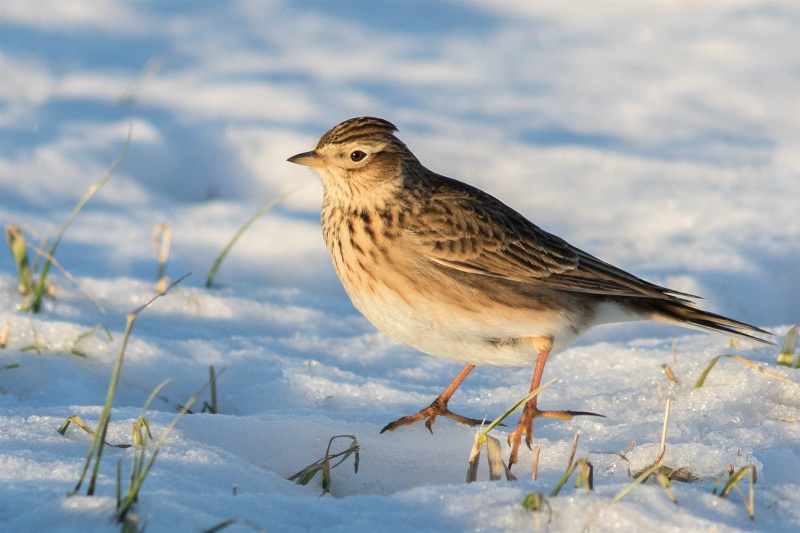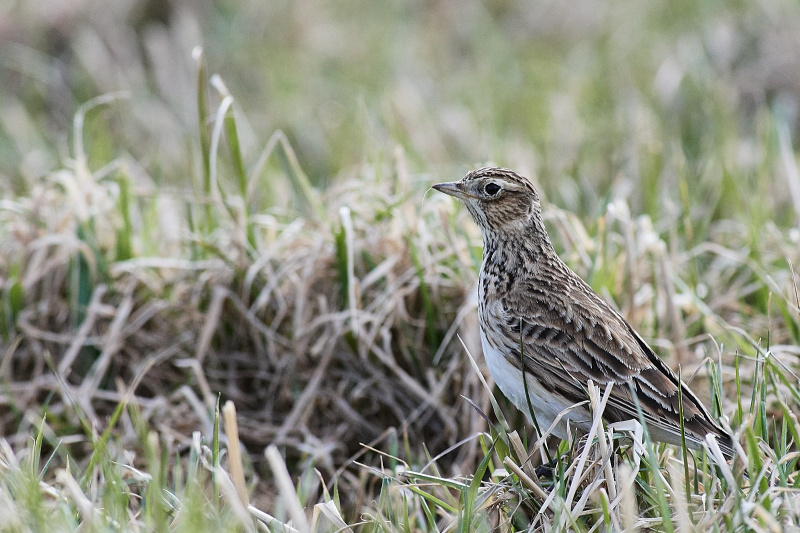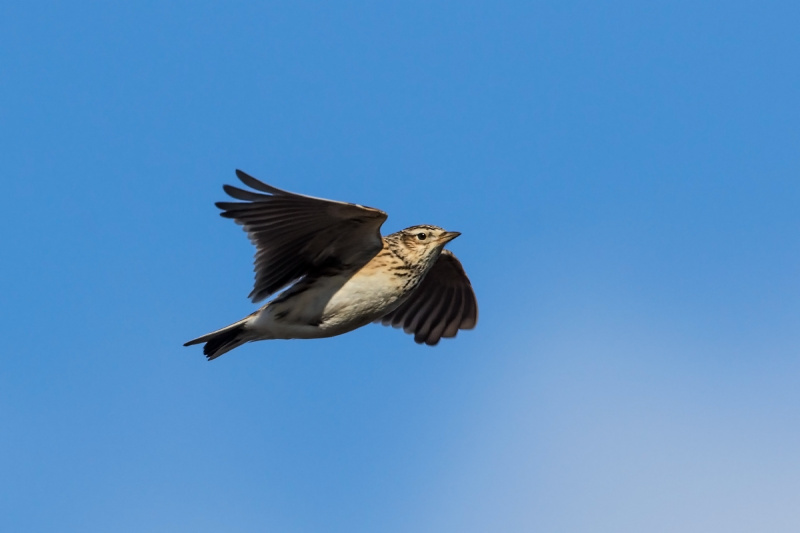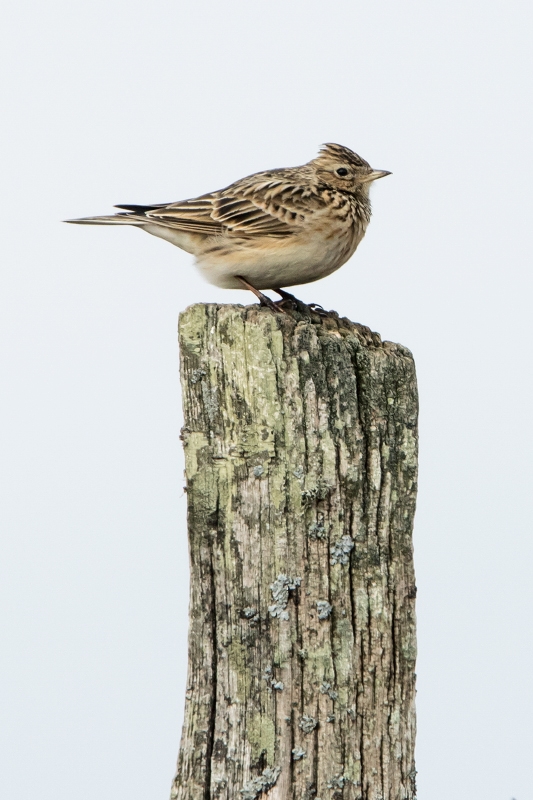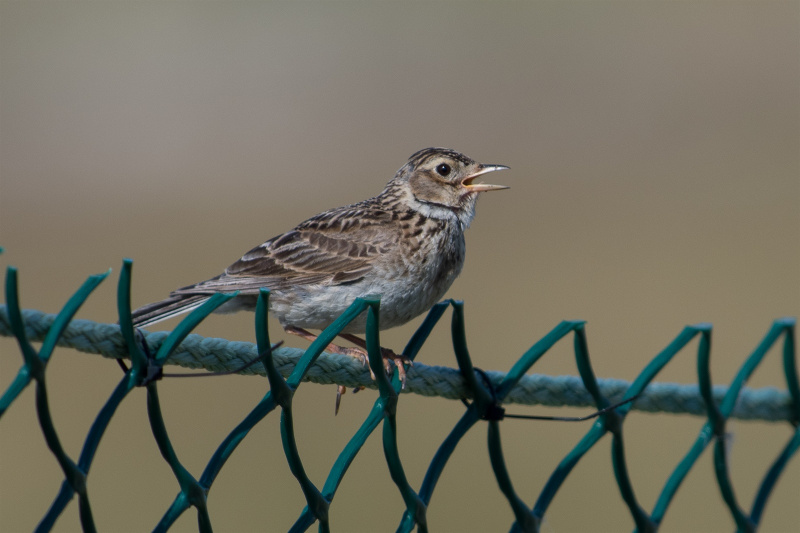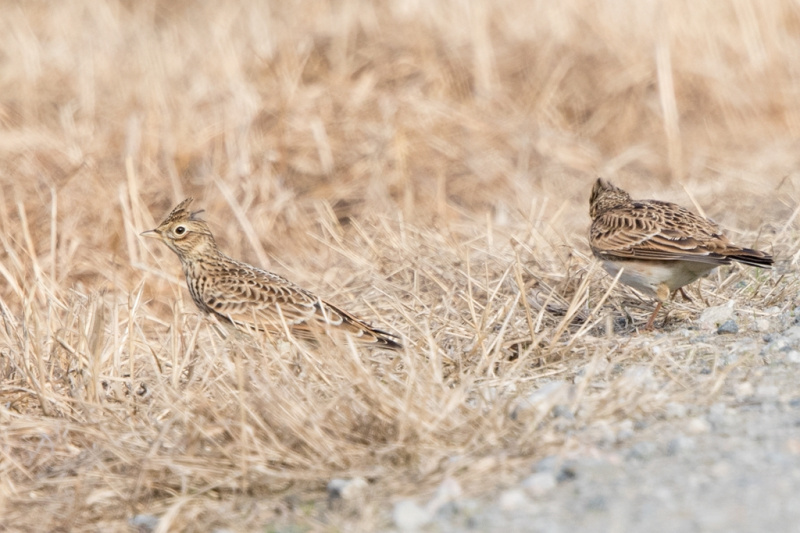Bearded Reedling (Panurus biarmicus)
Skylark (Alauda arvensis)
In all plumages recognized by its long tail, call, and choice of habitat (reeds). Male unmistakable, with bluish grey head, yellow bill and black drooping moustache. Females and juveniles mostly plain, yellow-brown with whitish underparts and no moustache. Young females with dark bill, young males with yellow bill and black lore. Juveniles with black patch on back and black outer tail feathers. Flight whirring and undulated. Sometimes fans tail in flight with twisting motions.
Sound:More often heard than seen. Usually identified by contact call; a ringing, explosive "tschin" with a characteristic "dirty" timbre. Also a hard and very short "pit", often mixed with the previous. Song a primitive, 3-syllable phrase, consisting of contact call-like sounds.
Contact call:
Distribution:
Xeno-canto: map
Ecology:Birdlife ecology
Links:
Observation.org Latest observations
Image search Flickr NB! May give other species
CCShort foldable crest. Pale eye-ring and supercilium. Long primary projection (primaries extend well beyond tertials), white trailing edge to wing and white outer tail feathers. Tail much longer than in Wood Lark.
Sound:Song a pleasing energetic stream of chirping, merry trills, interspersed with mimicry. Trills quite resonant with fairly full tone. Song usually given in flight high in the air. Less characteristic, shorter, weaker and more varied song when given from ground. Most typical flight call a short trilling "chirrup", with the end note noticeably lower pitched than the start. Also several other more cryptic calls.
Song:
Distribution:
Wikipedia: map (se also Xeno-canto below)
Ecology:Birdlife ecology
Links:
Observation.org Latest observations
Image search Flickr NB! May give other species
CC
 English
English Albanian
Albanian
 Armenian
Armenian
 Bulgarian
Bulgarian
 Catalan
Catalan
 Croatian
Croatian
 Czech
Czech
 Danish
Danish
 Dutch
Dutch
 Finnish
Finnish
 French
French
 Georgian
Georgian
 German
German
 Greek
Greek
 Hungarian
Hungarian
 Italian
Italian
 Latvian
Latvian
 Lithuanian
Lithuanian
 Macedonian
Macedonian
 Norwegian
Norwegian
 Polish
Polish
 Portuguese
Portuguese
 Romanian
Romanian
 Russian
Russian
 Sami : Lule sami
Sami : Lule sami
 Sami : North sami
Sami : North sami
 Sami : South sami
Sami : South sami
 Scientific names
Scientific names
 Serbian
Serbian
 Spanish
Spanish
 Swedish
Swedish
 Ukrainian
Ukrainian


